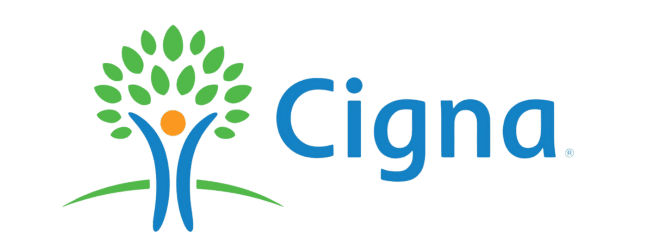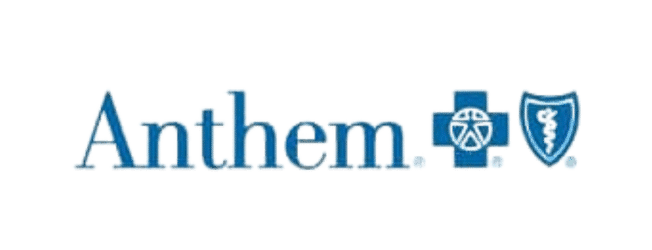Medication management is a crucial aspect of treating both psychiatric disorders and addiction. It involves overseeing and coordinating the use of medications to ensure they are used safely and effectively. This medication management process is not just about prescribing pills but about tailoring medication plans to meet individual needs, monitoring their effects, and adjusting as necessary. Proper medication management can significantly impact recovery outcomes by minimizing side effects, preventing medication interactions, and improving overall well-being.
Essential Takeaways
- Substance Use and Mental Health: Substance abuse and mental health issues are linked. Effective treatment addresses both simultaneously.
- Tailored Medication: Medication must be personalized, with careful selection and adjustment to manage both psychiatric and addiction issues. An accurate medication list is essential for effective medication therapy.
- Collaboration: Effective treatment requires teamwork among healthcare providers for optimal outcomes. This collaborative effort ensures a comprehensive treatment plan that includes all relevant medical conditions.
The Challenge of Balancing Medications
Balancing psychiatric medications with addiction treatment presents a unique set of challenges. Many individuals dealing with mental health issues and substance use disorders require medications that can potentially interact with one another. For instance, antidepressants might not mix well with certain substances used in addiction treatment, and vice versa. The goal is to find a balance that effectively addresses both conditions without exacerbating one or the other. This balancing act requires careful planning, ongoing monitoring, and a collaborative approach among healthcare providers.
Understanding Psychiatric Medications
Types of Psychiatric Medications
Psychiatric medications are designed to manage symptoms of mental health conditions. Here are some common types:
- Antidepressants: These medications, including selective serotonin reuptake inhibitors (SSRIs) and serotonin-norepinephrine reuptake inhibitors (SNRIs), help manage symptoms of depression and anxiety by altering brain chemistry to improve mood.
- Anti-Anxiety Medications: Benzodiazepines and other anti-anxiety drugs help reduce symptoms of anxiety. While effective, these medications can be habit-forming, making their use particularly tricky in individuals with substance use disorders.
- Antipsychotics: Used primarily for conditions like schizophrenia and bipolar disorder, antipsychotics help manage symptoms like delusions and hallucinations. They work by affecting various neurotransmitters in the brain.
- Mood Stabilizers: Medications such as lithium and valproic acid are used to stabilize mood swings in conditions like bipolar disorder, helping to prevent the extremes of mania and depression.
How Psychiatric Medications Work
Psychiatric medications work by altering the levels of neurotransmitters in the brain—chemicals that transmit signals between nerve cells. For example, antidepressants increase the levels of serotonin and norepinephrine, which are often low in people with depression. Antipsychotics can affect dopamine and serotonin pathways, which helps in managing symptoms like hallucinations. Understanding how these medications work helps in comprehending their benefits and potential side effects, including adverse effects that can arise from incorrect dosages.
Addiction Treatment and Medication
Medications for Substance Use Disorders
Treating addiction often involves medications that help manage cravings, withdrawal symptoms, and reduce the risk of relapse. Here are some key medications:
- Methadone: Used in the treatment of opioid addiction, methadone helps reduce withdrawal symptoms and cravings by acting on the same opioid receptors as heroin and other opioids, but in a controlled manner.
- Buprenorphine: This medication is a partial opioid agonist that helps manage withdrawal symptoms and cravings while reducing the risk of misuse compared to full opioid agonists like heroin.
- Naltrexone: Used for both alcohol and opioid addiction, naltrexone blocks the effects of opioids and reduces the rewarding effects of alcohol, helping to prevent relapse.
Integrating Addiction Medications with Mental Health Treatment
Integrating addiction treatment with mental health care requires careful coordination. The medications used in treating addiction should be compatible with psychiatric medications. For instance, using an opioid agonist like methadone while managing anxiety with benzodiazepines requires careful monitoring to avoid potential interactions and side effects. An integrated approach ensures that both conditions are addressed without compromising the effectiveness of the treatments. This is where medication therapy management becomes a critical component.
The Role of Healthcare Providers in Medication Management
Collaborating with Your Healthcare Team
Successful medication management involves collaboration among various healthcare providers. This includes psychiatrists, addiction specialists, and primary care doctors who work together to create a comprehensive treatment plan. Effective communication between these professionals ensures that all aspects of a patient’s health are considered, including the potential interactions between psychiatric and addiction medications. Regular consultations and updates are crucial in adapting the treatment plan as needed to minimize the risk of adverse drug events.
Monitoring and Adjusting Medication
Medication management is an ongoing process. Healthcare providers regularly monitor the effectiveness of medications, check for side effects, and adjust dosages based on the patient’s response. This might involve periodic blood tests, assessments of mental health symptoms, and evaluations of addiction-related behaviors. Regular follow-ups help ensure that the medications continue to provide the desired benefits and that any emerging issues are promptly addressed, including addressing concerns about medication errors and ensuring proper dosage.
Addressing Common Concerns and Side Effects
Managing Side Effects
Side effects are a common concern with both psychiatric and addiction medications. For psychiatric medications, side effects might include weight gain, sexual dysfunction, or drowsiness. Addiction medications might cause nausea, dizziness, or headaches. Managing these side effects often involves adjusting dosages, switching medications, or adding complementary treatments. It’s essential for patients to communicate any side effects they experience to their healthcare provider to find appropriate solutions. This open dialogue can lead to better therapeutic outcomes.
Avoiding Drug Interactions
Drug interactions can occur when psychiatric medications interact with addiction treatments or other substances. For example, certain antidepressants can interact with medications used to treat addiction, leading to increased side effects or reduced effectiveness. Avoiding harmful interactions involves careful selection of medications, monitoring for adverse effects, and educating patients about potential risks. Healthcare providers play a key role in minimizing these risks through detailed assessments and ongoing monitoring, helping patients navigate their medication management plans effectively.
Resources and Support
Support Organizations and Resources
For those seeking support in managing medications for psychiatric and addiction treatment, several organizations offer valuable resources:
- Substance Abuse and Mental Health Services Administration (SAMHSA): Provides information on treatment options and support services for substance abuse and mental health disorders.
- National Alliance on Mental Illness (NAMI): Offers educational resources and support for individuals and families affected by mental illness.
- Alcoholics Anonymous (AA): Provides a supportive community for individuals seeking to overcome alcohol addiction.
Educational Materials and Tools
To further your understanding of medication management, consider exploring the following resources:
- Books: Look for titles like “The Recovery Book” by Al J. Mooney and “Mindfulness-Based Relapse Prevention for Addiction” by Sarah Bowen for comprehensive insights into managing medications and recovery.
- Online Tools: Apps such as MyTherapy or Medisafe can help track medications, set reminders, and monitor side effects.
- Scientific Research: Explore recent studies on medication management and integrated treatment approaches through databases like PubMed or Google Scholar. Systematic reviews and comprehensive reviews can also provide valuable insights into best practices.
Conclusion and Call to Action
The Importance of Effective Medication Management
Balancing psychiatric medications with addiction treatment is crucial for achieving optimal outcomes. Effective medication management involves understanding how medications work, coordinating care among healthcare providers, and addressing any concerns or side effects. By taking a proactive approach to managing medications, individuals can enhance their recovery journey and improve their overall well-being, ensuring they receive the quality of care they deserve.
Take the Next Step Towards Balanced Medication Management
If you or a loved one is struggling with managing medications for psychiatric and addiction treatment, reach out for professional support. Contact your healthcare provider or a specialist to discuss your treatment options and develop a personalized plan that addresses both mental health and addiction concerns. For additional resources and support, explore the organizations and tools mentioned above.
FAQs
What should I do if I experience side effects from my medication?
If you experience side effects from your medication, contact your healthcare provider immediately. They can help determine whether the side effects are manageable or if a change in medication or dosage is needed.
How can I prevent drug interactions between psychiatric medications and addiction treatments?
To prevent drug interactions, ensure your healthcare providers are aware of all the medications you are taking. They can then adjust your treatment plan to avoid potential interactions and monitor you closely.
What role does medication management play in dual diagnosis treatment?
Medication management in dual diagnosis treatment is crucial for balancing medications used for psychiatric disorders and addiction. It helps in addressing both conditions effectively while minimizing side effects and medication interactions.
Are there any non-medication strategies for managing symptoms alongside medication?
Yes, non-medication strategies such as therapy, lifestyle changes, and self-care practices can complement medication management. Techniques like cognitive-behavioral therapy (CBT) and mindfulness can enhance overall treatment outcomes.
How often should I have follow-up appointments for medication management?
Follow-up appointments should be scheduled as recommended by your healthcare provider. Regular check-ins are important for monitoring the effectiveness of your medications, managing side effects, and adjusting treatment as needed.















